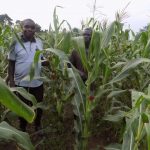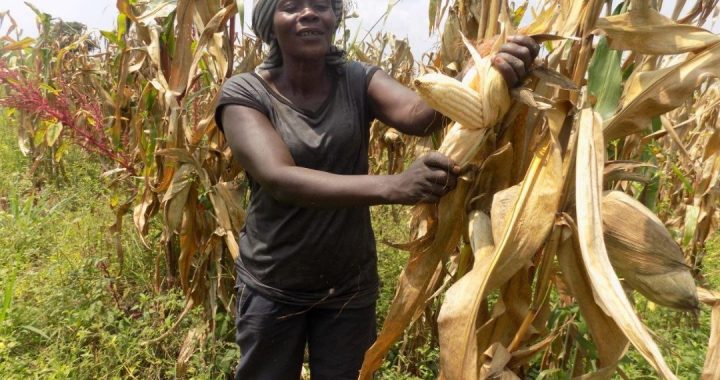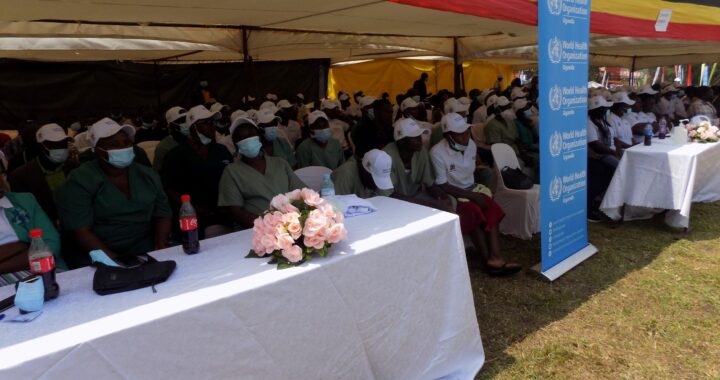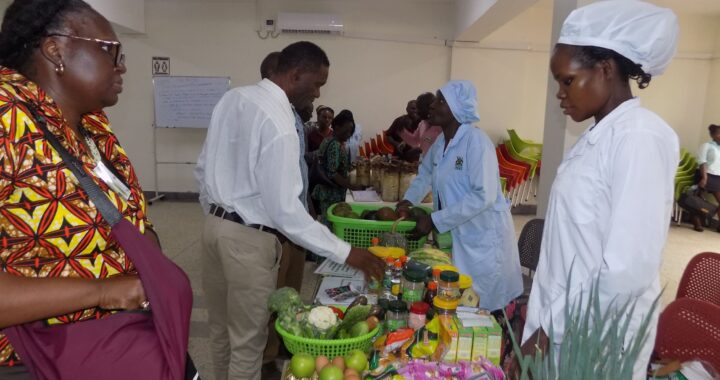UN regional body leads debate on food security
2 min read
A farmer admires a drought tolerant maize cob in Masindi district. Photo: By Christopher Bendana
By Christopher Bendana
The UN Economic Commission for Africa (ECA) has highlighted the importance of a more coordinated regional strategy to achieve food security in Eastern Africa by eliminating regional trade barriers, according to a press statement released by the ECA on 16 March.
The press statement says food security, a key sector, was discussed during the recently concluded 57th session of the ECA’s Conference of African Ministers of Finance, Planning, and Economic Development, held in Addis Ababa, Ethiopia, from 12 to 14 March.
The event, held under the theme “Food Security and Cross-Border Trade: Navigating Challenges and Opportunities Amid the Implementation of the Agreement Establishing the African Continental Free Trade Area (AfCFTA),” was organized by the ECA’s Subregional Office for Eastern Africa and Eastern Africa Trade Information and Negotiations Institute (SEATINI).
It brought together senior officials and experts to discuss the dynamics of food security and cross-border trade within the context of the AfCFTA.
They highlighted the importance of regional trade in helping attain food security.
Jane Nalunga, the Director of SEATINI-Uganda, and moderator of the session emphasized the importance of leveraging digital solutions and sustainable agricultural practices for Africa’s food security.
She called on researchers to explore how technological advancements and green innovations can transform food systems and build resilience.
Farayi Zimudzi, the Food Agriculture Organization (FAO) Subregional Coordinator for Eastern Africa, highlighted the pressing issue of low agricultural productivity amidst rapid population growth in Africa. “It is imperative that our agricultural production systems keep pace with population growth,” she stressed. “Increasing investment in research and development, particularly in high-yield crop varieties and improved livestock, must be prioritized.”
Channing Arndt, a Research Professor and Director of the Center for Global Trade Analysis, said that the persistent issue of high tariffs and non-tariff barriers (NTBs) continues to impede the free movement of agricultural products in Africa.
Experts at the meeting stressed that the AfCFTA can provide a rapid pathway to achieving greater regional food security. The AfCFTA is an important mechanism to boost intra-regional food trade, particularly in processed agri-food products. Simulations undertaken by ECA suggest that intra-continental food trade could increase by more than 60% by 2045 if the AfCFTA is fully implemented. Greater regional cooperation in removing the remaining barriers to intra-African trade offers a path to supply chain resilience in the sector, and ultimately better food security”.
The statement highlights Tanzania and Uganda as leading food exporters, with notable surpluses in key commodities such as maize.
Food exports among the key East African countries; Uganda, Kenya, and Tanzania has faced multiple trade barriers ranging from sanitary and phytosanitary requirements affecting maize exports from Uganda to Kenya to certification affecting Kenya’s maize imports from Tanzania.












